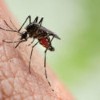Microbiome and Infection- Antimicrobial Resistance
This collection of Annals of Clinical Microbiology and Antimicrobials aims to explore the intricate relationship between the microbiome and antimicrobial resistance, focusing on the latest findings and strategies to combat this global health challenge.
Edited by- Hakan Leblebicioglu (VM Medical Park Hospital, Turkey) and Timothy D McHugh (University College London, UK)

